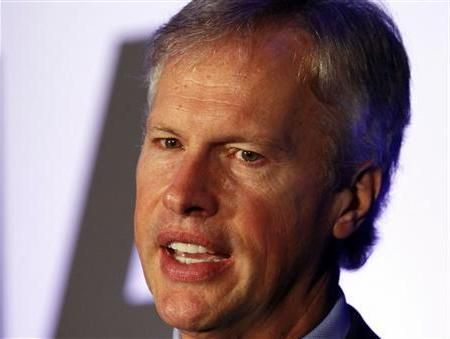 The Associated Press said on Monday the U.S. government secretly seized telephone records of AP offices and reporters for a two-month period in 2012, describing the acts as a "massive and unprecedented intrusion" into news-gathering operations.
The Associated Press said on Monday the U.S. government secretly seized telephone records of AP offices and reporters for a two-month period in 2012, describing the acts as a "massive and unprecedented intrusion" into news-gathering operations.
AP Chief Executive Gary Pruitt, in a letter posted on the agency's website, said the AP was informed last Friday that the Justice Department gathered records for more than 20 phone lines assigned to the news agency and its reporters.
"There can be no possible justification for such an overbroad collection of the telephone communications of The Associated Press and its reporters," Pruitt said in the letter addressed to Attorney General Eric Holder.
An AP story on the records seizure said the government would not say why it sought them.
But it noted that U.S. officials have previously said the U.S. Attorney's Office in the District of Columbia was conducting a criminal investigation into information contained in a May 7, 2012, AP story about a CIA operation in Yemen that stopped an al Qaeda plot to detonate a bomb on an airplane headed for the United States.
 CEO of the Associated Press Gary PruittFive reporters and an editor involved in that story were among those whose phone numbers were obtained by the government, the AP said.
CEO of the Associated Press Gary PruittFive reporters and an editor involved in that story were among those whose phone numbers were obtained by the government, the AP said.
The disclosure threatened to set off a confrontation between free press advocates and the Obama administration, which has aggressively pursued national security leaks.
"It's alarming given the scale of it," said David Schulz, an attorney with Levine Sullivan Koch & Schulz who is representing the AP. "This is a massive intrusion into the news gathering operation of one of the largest news organizations in the U.S. People should be concerned."
The U.S. Attorney's Office in the District of Columbia, which notified the AP of the seizure, issued a statement on Monday saying it was "careful and deliberative" when dealing with issues around freedom of the press.
The White House was not involved in the decision to seize the AP records, Press Secretary Jay Carney said.
"Other than press reports, we have no knowledge of any attempt by the Justice Department to seek phone records of the AP," Carney said. "We are not involved in decisions made in connection with criminal investigations, as those matters are handled independently by the Justice Department."
The seized phone records were for April and May of 2012, and AP bureaus in New York, Hartford and Washington were among those affected, as well as an AP phone at the U.S. House of Representatives press gallery, the AP said.
AP journalists' home and cell phone records were seized by the Justice Department, Pruitt said in his letter to Holder.
The reporters who were targeted included Matt Apuzzo, Adam Goldman and Eileen Sullivan, who were also part of a team that won the Pulitzer Prize for revealing secret New York Police Department intelligence operations targeting Muslim communities.
The AP said it had delayed reporting the Yemen plot story at the request of government officials and disclosed it after officials said it no longer endangered national security.
'POINTED QUESTIONS'
The AP is assessing options for legal action in response to the government's actions, said Schulz, the attorney.
The Justice Department has issued rules that apply to subpoenas seeking phone records for news organizations. The subpoenas must be approved by the attorney general, drawn as narrowly as possible and used only when other attempts to get the information have failed.
The department is also required to notify the organization and seek to negotiate an agreement before issuing those subpoenas, as long as "such negotiations would not pose a substantial threat to the investigation at issue. Pruitt said that the AP was not notified in advance.
The AP may have little recourse to fight the subpoenas in court, since they were served not on the news organization but, presumably, on phone companies, legal experts said.
David Anderson, a law professor at the University of Texas at Austin and an expert in media law, said there is no prohibition against seeking phone records to pursue potential leaks.
"There's nothing unusual about that, except that it's a news organization," said Anderson, who noted that the subpoenas could have a "terrible effect" by discouraging sources from talking to reporters.
Laura Murphy, director of the Washington legislative office of the American Civil Liberties Union, said that the incident was part of a pattern by the Obama administration in going after whistleblowers and leaked information.
Senate Judiciary Committee Chairman Patrick Leahy, a Democrat from Vermont, said he was "very troubled" by the allegations and wants to hear the government's explanation.
"The burden is always on the government when they go after private information - especially information regarding the press or its confidential sources. I want to know more about this case, but on the face of it, I am concerned that the government may not have met that burden," he said in a statement.
 В Атырау -10
В Атырау -10